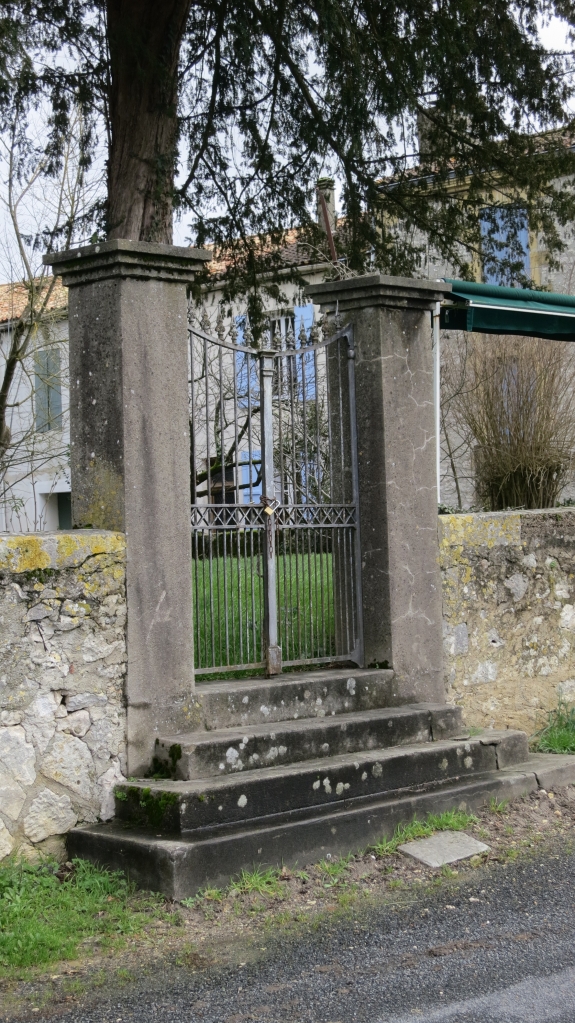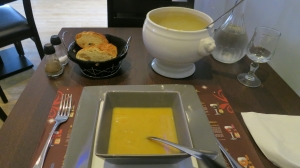Last night I watched ‘Prime Suspect’, the first of that iconic long-running television series starring the brilliant Helen Mirren. This episode charts Jane Tennison, the female DCI’s gradually earning of the support of all but one of her initially resistant male team. Tom Bell’s superbly odious sergeant is the exception. Such institutional prejudice was a real issue at the beginning of the final decade of the 20th century.
Today was dull, cold, and overcast. This morning I finished reading Susan Hill’s ‘The Betrayal of Trust’, and occupied myself with domestic chores preparatory to my departure for England tomorrow. I had been unaware that Susan Hill, one of our most gifted writers, had written a crime series focussed on DCI Simon Serrailler.
Written at a pace engendered by skillful use of short sentences and crisp dialogue, this is a gripping tale worthy of the author of ‘The Woman in Black’. It is only towards the end of the book that she drops in a couple of clues. The denouement draws together the strands of the lives of the expertly depicted personnel, all of which display the novelist’s gift for characterisation. Her descriptions of place and dwelling contribute economically to our understanding of the people.
But. As one would expect from this author, her book is about much more than the unravelling of a crime. It is a treatise on disability, dementia, terminal illness, and euthanasia.
One evening, late in 1997, over the space of three hours, what seemed to be ‘flu’-like symptoms reduced my wife Jessica to a terrifying inability to swallow. I telephoned the emergency GP service and spoke to a most unhelpful doctor. He refused to visit and told me to give Jessica aspirin. ‘If she can’t swallow, how am I going to give her aspirin?’, I asked. The response was that I should contact my GP in the morning, and if I became concerned in the night take her to casualty.
In the small hours of the morning I drove my wife to Newark Hospital’s casualty department, by which time panic had set in. There we were seen by a man in white, presumably a qualified medic. He stuck a spatula into her mouth, peered into it, and said he couldn’t see anything. He took a blood test, told us to go home, and said we would have the results in three days. I stood between him and the couch, faced him squarely, and asked: ‘If you can’t see anything, why can’t she swallow?’. At that, without a word, he walked out of the room leaving us alone. After what seemed like an age another man came in and announced that we were being sent to Nottingham. There followed a 25 mile ambulance trip.
Within minutes in one of that city’s casualty departments, with the aid of more sophisticated equipment, epiglottitis was diagnosed. I asked the doctor on duty what would have happened had I not stood firm. He replied that at the next stage Jessica would have been unable to breathe and would not have lasted the night. She was treated, rapidly improved, and we thought that was that.
Jessica seemed well, we forgot about the blood test, and I resumed my commuting to London. A couple of days later, in my consulting room 125 miles away, I received a phone call from my GP sister-in-law. ‘It’s myeloma’, she said. I had no idea what that incurable bone barrow cancer was. This is what the test had revealed.
There followed ten years of various treatments, including blood transfusions, two stem cell transplants, and finally, an unsuccessful donor transplant. Initially, periods of remission were such that Jessica was able to continue working as an emergency duty social worker. The months of relief gradually became shorter and shorter, and the relapses longer and she retired on ill health grounds after about five years. She died on 4th July 2007.
I am unable to follow this with what I had for dinner at Le Code Bar. Perhaps I’ll do that tomorrow.
Tag: The Woman in Black
People-watching
Last night I watched ‘La Dame En Noir’, the French version of ‘The Woman in Black’, a gothic treatment of Susan Hill’s ghost story. Directed by James Watkins, this was beautifully and terrifyingly filmed in marvellously muted colour. In order not to spoil it for future viewers I will simply say that Daniel Radcliffe is superb in the lead role, as is the supporting cast, especially Ciaran Hinds and Janet McTeer. Hearing dubbed French supplemented by subtitles in that language I was able to follow it well enough. Afterwards I watched it in English. The actors’ voices were then much more part of the performances.
I’m a pretty tough cookie when it comes to the supernatural, but, even on second viewing, I lost count of the number of times a shiver ran up the back of my neck and tugged at my facial muscles. The last film scene that had that effect on me was the revelation of Norman Bates’ mother in Psycho. That was in my teens.
 Except for the climb back into Sigoules, my walk today was comparatively flat. On the D17 towards Monbos a woman from the boulangerie was delivering bread to homes on the outskirts. I took a right turn to Le Bricoty, right again to the Cuneges road and finally right into my village. The two tracks off the main roads are heavily pock-marked with various materials providing in-fill.
Except for the climb back into Sigoules, my walk today was comparatively flat. On the D17 towards Monbos a woman from the boulangerie was delivering bread to homes on the outskirts. I took a right turn to Le Bricoty, right again to the Cuneges road and finally right into my village. The two tracks off the main roads are heavily pock-marked with various materials providing in-fill.
It was just as well that I returned as the church clock was striking noon, for Sandrine was waiting outside to take me to the airport. ‘It’s Tuesday the twelfth’, said I. Once again confusion had arisen when booking with her mother last Friday. Tuesday is ‘mardi’; noon is ‘midi’ or ‘douze heures’; the twelfth is ‘douze’. Sandrine was perfectly relaxed and most amused. As she speaks perfect English I said: ‘Lost in translation again’. We parted with ‘Mardi douze [at] midi [or] douze heures’ from me, and a good shared laugh.


 Yesterday’s soup in Le Code Bar was even better the next day. This was followed by a large slice of delicate pizza. The sweet was a toothsome frangipane tart. Unfortunately I managed to lose the photograph I took of the main course, so I will have to paint a pastoral picture. This was a beautifully presented terrace of tender duck breast medallions lying at the foot a glistening rocky hillock of dressed pasta garnished with cheese. The usual lettuce leaves provided a deciduous foliage, and what could be seen of the huge chromium oval platter was a surrounding lake. Once again I was full to bursting. Stuffed for the next twenty four hours.
Yesterday’s soup in Le Code Bar was even better the next day. This was followed by a large slice of delicate pizza. The sweet was a toothsome frangipane tart. Unfortunately I managed to lose the photograph I took of the main course, so I will have to paint a pastoral picture. This was a beautifully presented terrace of tender duck breast medallions lying at the foot a glistening rocky hillock of dressed pasta garnished with cheese. The usual lettuce leaves provided a deciduous foliage, and what could be seen of the huge chromium oval platter was a surrounding lake. Once again I was full to bursting. Stuffed for the next twenty four hours.
After lunch the fierce wind and I chased last autumn’s maple leaves around the garden. Since neither I nor my neighbours have such trees I’ve no idea where they are coming from.
I usually have two books, one in English and one in French, on the go at any one time. On completing Marguerite Duras’ ‘Emily L’ this afternoon I was struck by several contrasts between, and one coincidence in, that and Juliet Barker’s life of Wordsworth. The French novel is short and concise; a small format paperback with large print running to 152 pages. The English biography is immense and dense. It is a large format hardback comprising almost 900 pages of very small print. Although I didn’t know it before my reading, the novel also features the life of a poet. It will be some time before I finish the biography, so here I’ll just say a bit more about ‘Emily L.’. The novel uses the fascinating device of what Jackie would call ‘people-watching’. The four main characters occupy a bar overlooking the Seine. The French narrator, falling out of love with her male companion, concentrates on an English couple clinging to love despite the woman’s destructive alcoholism.
The thoughts of the Frenchwoman and her conversation with her man, always using ‘vous’ rather than the more intimate ‘tu’, are interspersed with the words of the husband across the room. His wife mostly looks at the floor whilst he soliloquises. Emily is the successful poet who has lost her muse. We learn why. An excellent story of the sadness of dying romance, it is given pace by the brevity of the sentences.
People-watching in restaurants is clearly an universal phenomenon. When in Le Code Bar I listen to all the voices around me, hoping to catch a few words of French. The speakers’ confidentiality is quite safe with me. I don’t understand enough.
